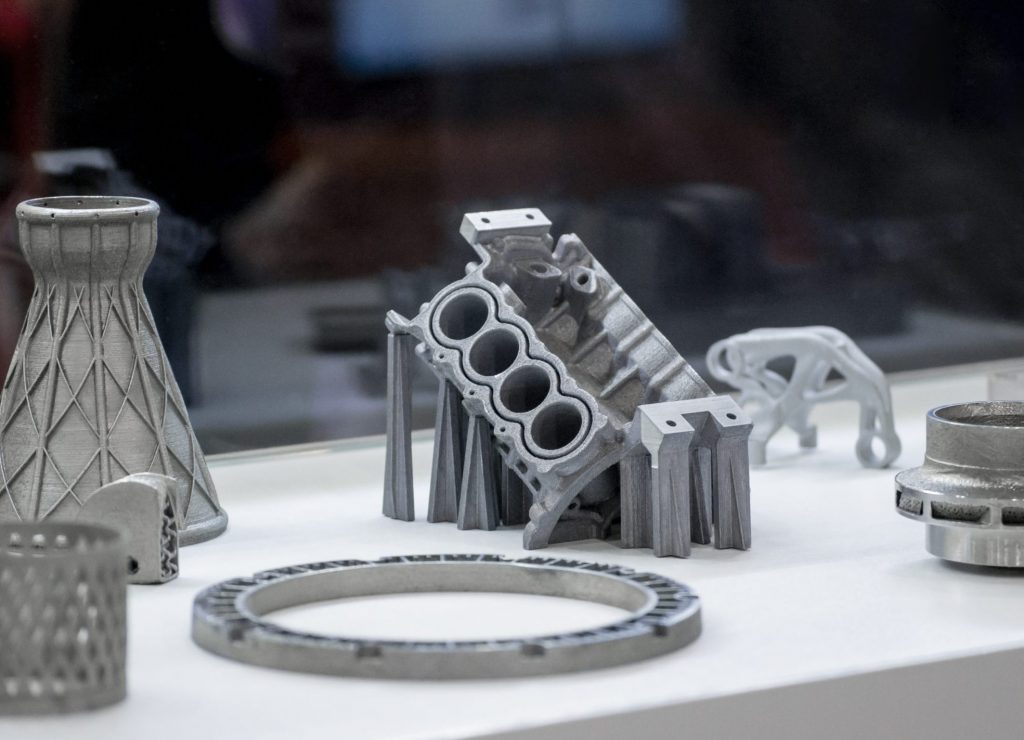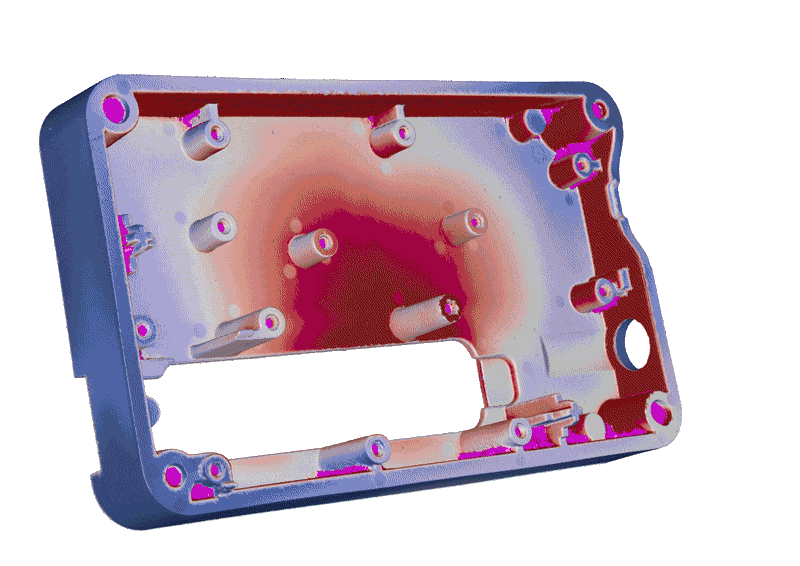3D scanner and software provider Riven has launched a comprehensive new part validation package that could enable engineers to expedite the New Product Introduction (NPI) process.
Riven’s integrated scanning, comparison and communication solution allows NPI engineers to capture printed parts, identify any deviation from their CAD files and collaborate to resolve issues. The platform effectively enables manufacturers to identify potential defects earlier-on in the design process, avoiding excessive product iterations, shipping delays and ultimately unhappy clients.
“By accurately measuring complex geometry such as warp, fillet radii, and amorphous surfaces, Riven identifies exactly where and by how much pre-production parts differ from the CAD design and then uses visual product communication to help teams collaborate on manufacturing and engineering adjustments,” explained said James Page, CTO of Riven.
“There is an un-resolved bottleneck in metal additive manufacturing – it’s NPI – and it fundamentally limits the speed, reach, and growth rate of the industry.”

A data capturing “innovator”
Describing itself as an “innovator” in 3D data capture, Riven specializes in developing scanning products that optimize the NPI process. The Berkeley-based outfit is led by a team of software, computer vision, and hardware veterans, and backed by significant investors such as BMW i Ventures and Wireframe Ventures.
Aimed towards injection molding, casting and metal 3D printing manufacturers, Riven offers a single combined data capturing and computation platform. Composed of a 3D scanner, plus CAD analysis and file-sharing software, the firm’s integrated solution is designed to distribute part validation throughout product iteration, allowing unwelcome defects to be discovered earlier on in the process.
Leveraging Riven’s new scanning solution, adopters are able to capture 3D printed parts and relay data to a rapid data-logging software, which automatically checks for dimensional defects. After monitoring for errors with an accuracy level of 0.002″ and a repeatability of 0.0004″ the firm’s proprietary program then allows users to connect with like-minded engineers to rectify any problems encountered.
The company says that its package has so far yielded best results when capturing 3D printed, MIM, and injection molded parts between 0.2 and 12 inches in length, while its compatibility with the popular STL, PLY, OBJ, STEP and Parasolid file types, has already allowed multiple clients to optimize their product design workflows.

Testimonies to part optimization
In one case, using its automatic ‘Go/No-Go’ software tool, Riven says that an unnamed Mid-Atlantic customer has been able to uncover the cause of deformation within its metal sintered parts before entering post-processing. By providing the client with feedback, the platform allowed it to rapidly re-iterate the object’s design, saving thousands of engineering hours in the process.
Elsewhere, a Riven user in the Bay Area has utilized the program’s ‘CAD-compare’ feature to diagnose the cause of warping within several batches of its injection molded parts. For the firm’s CTO James Page, such client testimonies show how its software package can help prevent the need to scrap unwanted parts, providing users with substantial cost, efficiency and sustainability benefits.
“Every product iteration takes time, resources and materials,” explained Page. “Riven’s cost-effective 3D data capture, analysis, and communication tools provide the missing link for an advancing industry while reducing scrap, travel, and shipping, and making important in-roads towards eliminating the $3 trillion of annual manufacturing waste.”
Scanning software innovation
Many 3D scanners now come shipped with proprietary softwares that provide application-specific functionalities. Scanner manufacturer Artec 3D offers its Artec Studio program, which accelerates the task of producing, editing and processing 3D data, while being compatible with ultra-high resolution imaging.
Similarly, California-based capture technology company Matterport has launched a cloud-based 3D scanning platform that enables users to transform panoramic imagery into models of built spaces. Referred to as Matterport Cloud 3.0, the proprietary software is powered by an AI-powered image-processing technology, that supports full 360° cameras.
Elsewhere, on a more educational note, Creaform recently announced the launch of its ACADEMIA 20 3D scanner, which is optimized for use alongside its existing academic software suite. The firm offers a complimentary digital package to each of its ACADEMIA clients, which includes unlimited access to industry-standard teaching materials, covering scanning, reverse engineering and inspection.
To stay up to date with the latest 3D printing news, don’t forget to subscribe to the 3D Printing Industry newsletter or follow us on Twitter or liking our page on Facebook.
Are you looking for a job in the additive manufacturing industry? Visit 3D Printing Jobs for a selection of roles in the industry.
Featured image shows a set of metal 3D printed parts produced using DMLS, SLM and SLS technologies. Photo via Riven.



